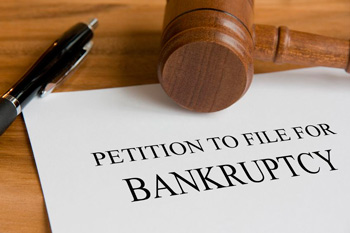 The different types of bankruptcy are divided into chapters. Chapter 7 and Chapter 13 bankruptcy are the two most common chapters that individuals and small business owners file. Here is some information that we hope will help shed some light on the unique power offered by Chapter 7 bankruptcy:
The different types of bankruptcy are divided into chapters. Chapter 7 and Chapter 13 bankruptcy are the two most common chapters that individuals and small business owners file. Here is some information that we hope will help shed some light on the unique power offered by Chapter 7 bankruptcy:
Wipe Out Debt Permanently
Chapter 7 bankruptcy is a great solution for individuals who have become burdened by hardships and unmanageable amounts of business, medical and credit card debt, bank and payday loans, tax debt and even debts against secured assets. Harnessing the power of Chapter 7 bankruptcy, our clients routinely and permanently wipe away an individual’s personal liability on debt in amounts between $5,000 and $5,000,000 - with no further obligations to their creditors! Another incredible aspect is that this process usually only takes 3 months.
Stop Harassment, Garnishments, Repossessions & Foreclosures!
Creditors tend to be very aggressive with collections, especially on larger amounts of debt. Unfortunately, they often utilize a string of half-truths and flat out lies to scaring people to get their way. It’s no wonder there are so many misconceptions about bankruptcy - your creditors are the last people that want you to know how it really works.
The “automatic stay” is one of the most powerful provisions within the bankruptcy code that prohibits creditors from any collection efforts once an individual’s case is filed. So basically, the bankruptcy court has the power to “push pause” on your creditors and instantly halt collections and even legal action - regardless of where it is in the process.
The automatic stay is effective for the duration of the bankruptcy process. After the debt is wiped away, a “discharge injunction” is issued which provides permanent protection after the automatic stay expires. Both of these provisions prohibit creditors from attempting to collect discharged debts from you, and the penalties for creditors that decide to disobey this order can be severe.
Keep and Protect Property
A common misconception is that if you file for bankruptcy, you’ll lose everything. Nothing could be further from the truth. Most of the time our clients keep everything they own. How? The bankruptcy code has what are called “exemptions,” which are used to shield your valued assets from the bankruptcy process (and your creditors). Exemptions cover many types of property including homes, land, vehicles, tools, furniture, clothing, jewelry, and much more. Additionally, life insurance cash value, workers compensation claims, and retirement plans are all exempt. Exemptions are controlled at the state level, so it’s important to discuss them with a local bankruptcy attorney.
However, it’s important to note that in a Chapter 7 bankruptcy, any non-exempt property can be auctioned off by the bankruptcy court to repay your creditors. Also, when exempting property that is secured with a loan, such as a financed car or a mortgage, (known as “reaffirming”) those payments must be current and kept current throughout the bankruptcy process. If you are unable to catch up on payments but would like to keep the property, Chapter 13 bankruptcy may be a better alternative that allows you to catch up on the delinquent payments over the next few years while maintaining possession of the property.
When implemented properly, exemptions provide incredible results that allow you to maintain your way of life while wiping away debts that could otherwise threaten it.
Get Rid Of Unwanted Property
Trying to ditch property outside of the bankruptcy process results in the creditor or lien holder being able to repossess the property and go after the debtor for all kinds of fees, interests and of course the remaining balance after the property is auctioned off (most likely at a price that is significantly under the market value).
Fortunately, Chapter 7 allows you to surrender these “assets” and the associated debts. That’s right - the lender is forever prohibited from going after the debtor for any related collections or fees, and the debtor is released from any contractual obligations. This can be a blessing to individuals and families that are struggling to keep up with payments on vehicles, homes or other assets they can no longer afford.
Conclusion
By getting out of debt, you create a world of new opportunities and possibilities. No longer is the heavy burden of harassing phone calls, building interest, collection and legal fees, repossessions and foreclosure something that weighs you down every day. Chapter 7 bankruptcy can transform your finances and your life, and creates lasting peace of mind. To see if you meet the qualifications to file a Chapter 7, consult with an accomplished and knowledgeable bankruptcy law firm in your state.

